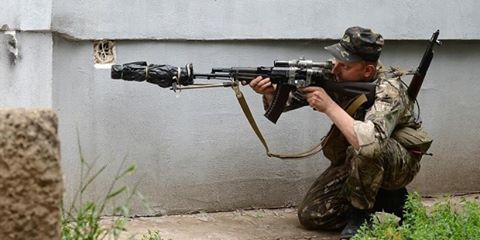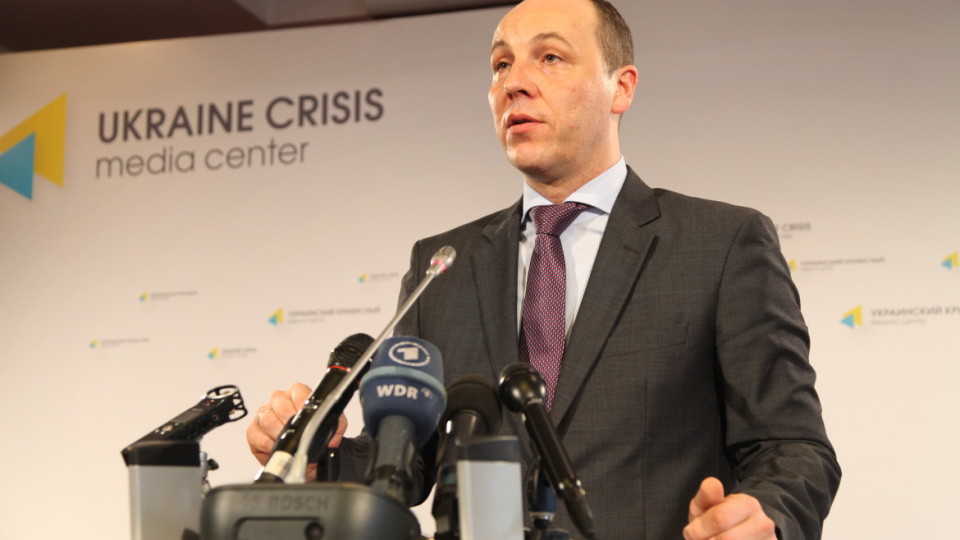Just as Moscow opened the way to its annexation of Crimea by undermining Ukrainian positions in the Donbas, so too, if Vladimir Putin decides to officially incorporate parts of the Donbas into the Russian Federation, he would need to launch a major program to destabilize Ukraine by launching attacks elsewhere, according to Kyiv experts.
Such Russian actions elsewhere, these defense analysts say, would not only create problems for Kyiv in maintaining order but also have the effect of forcing the Ukrainian military to pull out of its currently fortified positions opposite the Russian occupiers and aggressors to defend the country elsewhere.
These conclusions, which are contained in a report prepared for the Liga.net portal, are summarized by Kseniya Kirillova on the Krymr.com site today. And the US-based Russian analyst includes the commentaries of others about the Liga analytic report’s findings.
The report begins, Kirillova says, by observing that over the last three years, the military capacity of the Ukrainian military has improved dramatically and that “in the case of a non-nuclear conflict,” Kyiv’s forces on their own “would be capable of inflicting enormous damage on Russian ones.”
Both Russian and Ukrainian analysts share that view. Igor Girkin (aka “Strelkov”), the original field commander of Russia’s “Novorossiya” operation in the Donbas, for example, has said that “it is already impossible to defeat the Ukrainian army in an open battle.” Leonid Polyakov, former Ukrainian defense minister, has said the same.
The Liga report specifies that officials near Ukrainian President Petro Poroshenko say that “Moscow is considering the option of the official seizure of Ukrainian territories in the Donbas,” something that will require the Russians to increase their efforts at destabilizing other parts of Ukraine.
These sources maintain, the report continues, that “now, the Russians are actively involved in Mykolaiv and Kharkiv” and introducing people there to raise tensions in order to show that “the ‘Novorossiya’ project is still alive.” Oleksandr Turchynov, secretary of the Ukrainian security council, suggests that the Kremlin “will try to destabilize” Kyiv itself.
Ukrainian experts, however, cast doubt on Moscow’s ability to do this anytime soon. As quoted by the Liga report, they suggest that the Russian forces won’t be ready for a full-scale invasion of Ukraine until 2020, some three years from now – although they admit that smaller attacks are possible before that time.
The report also addresses the threats that the Russian military now poses to Belarus and the Baltic countries. Many officials and analysts have suggested that Moscow may not withdraw its forces after the West-2017 exercises in Belarus and thus effectively occupy that country in a “hybrid” manner.
And it says threats to the Baltic countries are “no less serious,” although experts there argue Russia is far less likely to invade them now than it might have been three years ago given that, in the words of one, “NATO partners understand our situation and are ready to back us.” Russian destabilization efforts, of course, are another matter.
Related:
- Russian-hybrid forces kill four civilians in Donbas amid Eurovision grand final
- Ukrainian soldiers in war zone display enemy “trophies” gathered after night attacks
- Stages of Russian occupation in a nutshell
- Since 1945, Moscow has been involved in a military action on average every 2 years
- Ukraine does not need illusory “peace” at the price of capitulation – Ukrainian intellectuals
- Moscow’s objective – gain land corridor to Crimea by seizing Mariupol, Ukrainian analyst says
- Three Internet appeals from Eurasia with potential real world consequences





